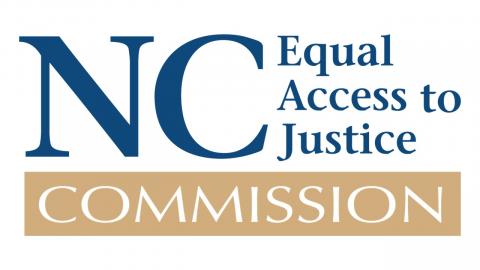Civil Legal Aid in North Carolina Still Available During Pandemic Outbreak
Article contents

RALEIGH — While North Carolinians have been directed to stay home, many people may still face legal issues that can cause significant financial and emotional hardship. North Carolina legal aid providers remain open, responding to inquiries and resolving problems that impact the basic human needs of their clients, whether related to the current pandemic or not. The member organizations of the Equal Justice Alliance, North Carolina’s coalition of civil legal aid organizations, provide civil legal services to low-income and vulnerable populations who are unable to afford an attorney.
“In this time of immense need for timely and accurate legal information, advice and representation, we want people to know that resources are available to assist them,” said Rick Glazier, executive director of the North Carolina Justice Center, who serves as chair of the Equal Justice Alliance. “The North Carolina Justice Center and legal aid programs across the state continue to be open and available as essential providers of free legal services.”
“While most staff are working remotely, attorneys are still going to court as necessary to protect the rights of clients,” says George Hausen, executive director of Legal Aid of North Carolina. Hausen encourages those in need of help to reach out. “Our statewide hotlines and online application are open and advocates are working to screen callers and direct them to the best available resource.” Hausen anticipates an increase in calls in the coming months related to employment, landlord-tenant and consumer issues, especially as the long-term impacts of the pandemic set in.
Most in-person meetings and clinics have been canceled to comply with public health directives. However, legal aid programs continue to serve those in need through technology such as Facebook Live or webinars and complete most one-on-one client work by phone and email.
See below for more information about civil legal aid programs in North Carolina and how to access legal services.
- Charlotte Center for Legal Advocacy provides general civil legal services in the greater Charlotte region. Call 1-800-438-1254 to apply for services. Visit https://charlottelegaladvocacy.org/covid19-updates for more information.
- Council for Children’s Rights provides legal services for children in Mecklenburg County. Call 704-372-7961 for information and resources.
- Disability Rights North Carolina provides advocacy to advance the legal rights of people with all types of disabilities, of all ages, statewide. Apply online at https://disabilityrightsnc.org/gettinghelp/apply-for-help or call 1-877-235-4210, TTY: 1-888-268-5535.
- Financial Protection Law Center provides legal services to homeowners and consumers statewide regarding foreclosure, bankruptcy and consumer law issues. Call 910-442-1010 to apply.
- Land Loss Prevention Project provides legal services to landowners, homeowners, farmers and farm-related businesses statewide. Call 1-800-672-5839 to apply. Visit www.landloss.org for more information.
- Legal Aid of North Carolina provides general civil legal services statewide. Apply online at www.legalaidnc.org/get-help/apply-online or call 1-866-219-5262. Visit www.legalaidnc.org/coronavirus for resources.
- North Carolina Justice Center – Call 919-856-2162 to apply. For more information and resources, visit www.ncjustice.org/covid-19-response.
- North Carolina Prisoner Legal Services provides legal services to prisoners and inmates statewide. Call 919-856-2200 to apply. Visit www.ncpls.org for more information.
- Pisgah Legal Services provides general civil legal services in Western North Carolina. Apply online at www.pisgahlegal.org/free-legal-assistance or call 1-800-489-6144.
About North Carolina Equal Access to Justice Commission
The 30-member North Carolina Equal Access to Justice Commission is chaired by Supreme Court of North Carolina Chief Justice Cheri Beasley. Its mission is to expand access to civil legal representation for people of modest means in North Carolina. The Commission works with court, bar and community leaders to develop new methods and strategies to address unmet legal needs.
About North Carolina Equal Justice Alliance
The North Carolina Equal Justice Alliance provides central coordination of a sustained, comprehensive, integrated, statewide system to provide the most effective legal services to people in poverty in North Carolina. The members of the Equal Justice Alliance are Charlotte Center for Legal Advocacy, Council for Children’s Rights, Disability Rights North Carolina, Financial Protection Law Center, Land Loss Prevention Project, Legal Aid of North Carolina, North Carolina Bar Foundation, North Carolina Justice Center, North Carolina Legal Education Assistance Foundation, North Carolina Prisoner Legal Services, Inc., North Carolina State Bar Plan for Interest on Lawyers’ Trust Accounts (IOLTA) and Pisgah Legal Services.